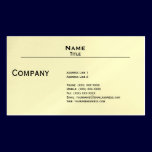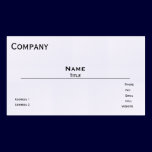In any case, irregular payments, unusual business-related expenses, and supplemental income in the form of "regular" jobs all add up to a more complicated than average tax return.
Many artists end up with a combination of income types: income from regular wages and income from self-employment. Income from wages involves a regular paycheck with all appropriate taxes, social security, and Medicare withheld. Income from self-employment may be in the form of cash, check, or goods, with no withholding of any kind.
The business-related expenses are deducted differently for each type of income, and you will need to complete several different forms in order to do so. Review the guidelines below to determine the correct way to deduct your expenses.
- If you get a regular paycheck: If you've got a gig lasting more than a few weeks, chances are you will get paid regular wages with all taxes withheld. At the end of the year, your employer will issue you a form W-2. If this regular paycheck is for entertainment-related work (and not just for waiting tables to keep the rent paid), you will deduct related expenses on a Schedule A, under "Unreimbursed Employee business expenses," or on Form 2106, which will give you a total to carry to the schedule A. The type of expenses that go here are:
- Union dues.
- Apparel: Uniforms, costumes, special shoes (tap, ballet, character, or anything else not suitable for street wear) theatrical makeup, and wigs.
- Cleaning of work-related apparel.
- Education: Acting, voice, or dance lessons, or other education related to improving or maintaining your performance skills.
- Photographs, videos, or CDs used for self-promotion and marketing.
2. If you are considered an independent contractor: Independent contractors get paid by cash or check with no withholding of any kind. This means that you are responsible for all of the Social Security and Medicare normally paid or withheld by your employer; this is called Self-Employment Tax. In order to take your deductions, you will need to complete a Schedule C, which breaks down expenses into even more detail. In addition to the items listed above, you will probably have items in the following categories:

_________________________
- Advertising: Promotional and marketing materials go here, as do any ads you place offering your services.
- Legal and professional fees: Commissions to agents, attorney fees, and tax preparation fees go here. You can also put union dues here if the membership is not tied to any one job.
- Auto/transportation expenses: Track your mileage to auditions, keep receipts for the bus or subway, and hang on to plane and train ticket info.
- Insurance: Any special insurance or bond required because of your work. NOTE: Health insurance is deducted elsewhere, so don't include that here.
- Supplies: Shoes, costumes, makeup and office supplies go here.
- Other: Postage, cell phone if devoted exclusively to work, fax or photocopy fees, classes, reference materials, subscriptions, and anything else related to getting or performing work. If in doubt, keep the receipt, note what it was for, and ask your tax professional or the IRS.
3. If you have a combination of income types:You will be better off subtracting as many expenses as you can on the Schedule C, since this will lower your Self Employment Tax. If an expense relates to both types, either put it all on the C or break it down and put a percentage on the C. Don't lie, but take the time to figure out what can legitimately be deducted against each type of income.
4. If all of this seems overwhelming or confusing: Go to a professional tax preparer. The most important thing for you to do is keep track of your income and expenses; you can always pay someone to put everything in the right place on the right form for you. But good recordkeeping is crucial. Even the best tax professionals cannot save you money or keep you out of trouble if you don't have good records. Keep all receipts, even if you just throw them in a big envelope marked "Taxes." Note daily expenses in whatever kind of calendar you use for appointments. The IRS loves to see stuff in writing. And don't forget the benefit of educating yourself; taking even a few online classes in business tax law can help you keep your company (yourself) from being faced with problematic tax issues.
_________________________
see on 8 products




























No comments:
Post a Comment